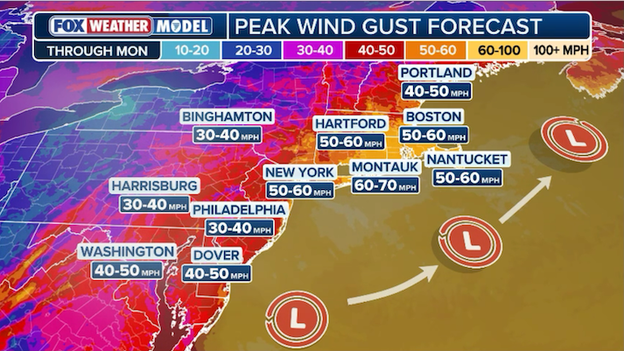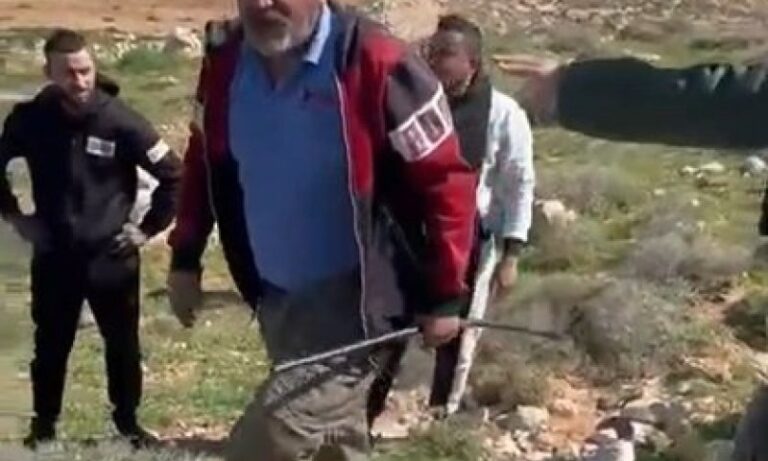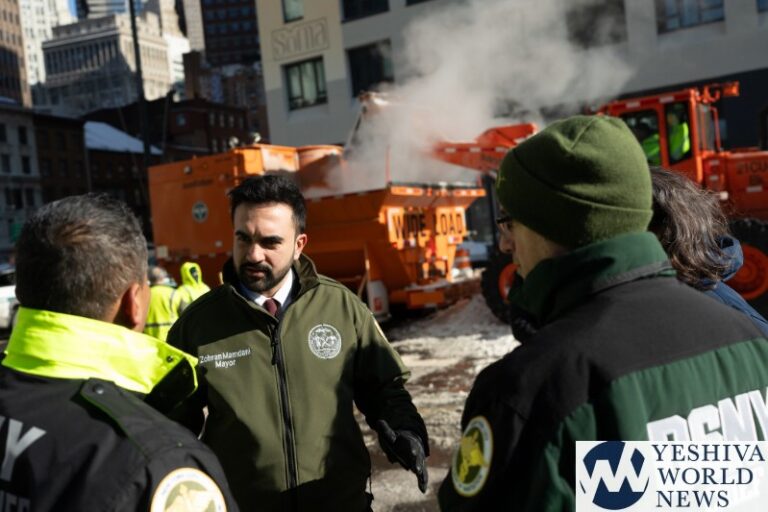(By Rabbi Yair Hoffman for 5tjt.com)
Written in honor of the shalom zachar of our seventh grandchild – born to Rephael and Mirelle Giller.
While in Auschwitz, the Klausenberger Rebbe zt”l was shot in the arm r”l by a Nazi. He was afraid to go to the Nazi infirmary, even there were doctors there. He knew that if he entered that building, he would never come out alive.
Instead, the Rebbe plucked a leaf from a tree to stanch the bleeding. He then cut off a branch and tied it around his wound to hold it in place. It healed in 3 days. He then promised himself that if he would survive the horrible evil that was Auschwitz- he would build a hospital in Eretz Yisrael where every human being would be cared for with dignity. And the basis of that future hospital would be that the doctors and nurses would believe that there is a Creator in this world and that when they treat a patient, they are fulfilling the greatest mitzvah in the Torah.
Fast forward 32 years. The Rebbe did survive. We are in Union City, New Jersey in the Yeshiva’s building. It is now 1976, slightly after Purim, and the Rebbe is conducting a Shalom Zachar, but it is not for his child nor a grandchild. Nor is it for any child of one of his Chassidim.
Who was it for?
In 1976, the maternity ward of the Klausenberger Rebbe’s Laniado hospital in Netanya had just opened up. Its first baby was born. It was a boy. The Rebbe was called and the phone was taken in the nursery where the Rebbe could hear the child cry.
The Rebbe was overcome with emotion. The Nazis had been defeated and Klal Yisroel had survived. A new child had entered Klal Yisroel. How could he not make a Shalom Zachar? How could he not make a seudas Mitzvah of thanks?
ON SHABBOS AFTER MAARIV
After Maariv in thousands of shuls across the world, the gabbai will announce that a shalom zachar will take place at the house of so and so. We are all tired after a hard week. But the emotion felt by the Klausenberger Rebbe in seeing the continuity of Klal Yisroel should be felt by all of us. How can we not go?
THE MINHAG
It is a minhag in Ashkenazic Jewish circles to host a Shalom Zachar where the baby is found on the Shabbos after a baby boy is born. It is generally held after the Shabbos evening meal. It is not a meal where people wash.
IMPORTANCE OF UNDERSTANDING THE REASON FOR MITZVOS
The Rambam (Hilchos Me’ilah 8:8) tells us that it is important to understand the reason why we do our Mitzvos. He also writes this in Moreh Nevuchim (3:31). It is also the view of the Zohar (Parshas Yisro p. 93b) and Rabbeinu Yonah Shaarei HaAvodah #54. This is also true for understanding why we perform our customs. There are three main reasons cited for the custom of the Shalom Zachar.
GRATITUDE REASON
The Terumas HaDeshen (Siman 269) explains that it is a Seudas Hoda’ah, a meal of thanksgiving. It is held in thanks that the child was saved from the travails and dangers involved in the birth. This is how the Terumas HaDeshen understands the view of Rabbeinu Tam cited in Tosfos in Bava Kamma (80a, “Yeshua HaBen”).
NEW SPIN ON THE GRATITUDE REASON
Perhaps the incident cited above gives us a new reason for the Shalom Zachar. Perhaps, in the eyes of the Klausenberger, the baby represents Klal Yisroel. This baby, Klal Yisroel was saved from the travails and dangers of Jewish history. Infant Klal Yisroel had survived the Rindfleish Massacres, the Crusades, the Gzeiras Tach vetat of Chmelnieki, the pogroms of Russia, and the holocaust itself! This baby represents the very continuity of the Jewish people itself.
This reason of Hakaras HaTov for the Shalom Zachar highlights to us the idea that we should always have and develop a feeling of gratitude and appreciation for all that Hashem gives us. We should also have this appreciation for all that others do for us as well. This is a critical component in our development as Ovdei Hashem.
APPRECIATING TORAH REASON
The TaZ cites another reason in the name of the Drisha. The Drisha was written by Rav Yehoshua Falk (1555-1614), a great Posaik from Poland. He writes that is based upon the Gemorah in Niddah 30b that states that when the child is born a malach, an angel, strikes the baby on his mouth and causes the child to forget all of the Torah he had learned while in his mother’s womb. This meal, according to the Drisha, is to mourn the Torah that was lost.
According to this reason, we highlight our appreciation for Torah study. The Torah must always be central to our lives. Every day in Maariv we recite “ki HAIM chayeinu.” Torah is our life itself.
APPRECIATING SHABBOS
The TaZ provides his own reason based upon a Midrash found in chapter 27 of VaYikra Rabba. There, the Midrash explains why the Bris Milah is held on the eighth day. It draws a comparison between a king who tells his subjects that he will only grant them an audience after they first appear before a matronisa – a hostess. The TaZ writes that this is the reason we hold the Shalom Zachar on Shabbos.
From the TaZ we gain an appreciation of the gift that Hashem gave us in the Shabbos. It is important to remember that more than the Jew has kept Shabbos – Shabbos has kept the Jew. Although it is somewhat ironic that the person who coined this expression was not observant, it is, nonetheless, a truism.
WHY NOT FOR GIRLS?
Rav Yechezkel Landau of Prague is noted to have asked the question on the reason cited by the Terumas HaDeshen (in his Dagul Mervavah sefer on Yoreh Deah). If this is the, in fact, the reason for the Seudah to express our appreciation for the salvation of the baby – how come we do not hold this meal when a girl is born?
This author would like to answer that question with a shocking find. In Meseches Smachos Aivel Rabbasi (2:3) – we do find such a meal!
The meal is called “Shavuah HaBas” and it parallels the name found in Bava Kamma called Shavuah HaBen. It is also likely that the Kiddush that we have in shul on Shabbos when a girl is born is in order to fulfill this idea too.
Some relate that Rav Chaim Kanievsky Shlita has consistently advised young women who are still in search of a Shidduch to hold a Kiddush in shul – even if the girl is now in her twenties! It could very well be that the Shabbos Kiddush is a fulfillment of the “Shavuah HaBas” that is referenced in Aivel Rabbasi. Others, however, relate that this is not Rav Chaim’s position.
REASON FOR THE NAME
The Yaavetz writes in his Sefer Migdol Oz that the reason it is called Shalom Zachar is on account of the fact that it is to remember or commemorate the Torah that was lost. While the baby was in the womb he was studying Torah with a malach. That Torah is now no longer – it is lost. This meal commemorates it.
IS IT A SEUDAS MITZVAH?
The Trumas HaDeshen rules that, in fact, the Shalom Zachar is a Seudas Mitzvah. He cites as a proof that the Gemorah in Bava Kamma tells us that Rav entered the meal of Yeshua HaBen (as it was called then, according to the Trumas HaDeshen). We know from elsewhere (Chullin 95b) that Rav never ate at a Seudas Reshus – a festive meal that was not a seudas Mitzvah. Therefore, the Trumas HaDeshen concludes that it is a Seudas Mitzvah.
The Chavos Yair, however, disagrees. He states (Siman 70) that it is possible that Rav had just popped in and did not partake of the actual meal itself.
DELAYED BRIS
If the child is jaundiced or otherwise ill and the Bris will not be held within the next week, there is a debate among authorities as to when the Shalom Zachar is to be held. Some hold it on the Shabbos before the Bris (Yaavetz and Chochmas Adam 149:24), while others (Zocher Habris) hold that it is always the Shabbos after the baby is born. The language of the Ramah seems to indicate that he held to this view. The prevailing custom seems to be that it is held after the birth.
A FRIDAY NIGHT BIRTH
What happens when the baby is born on Friday night? In such circumstances it is often logistically difficult to arrange a Shalom Zachar. The Pri MaGadim (MZ YD 444:9) writes that one does it as close to the birth as possible. The Chayei Adaam, however, disagrees and writes that it should be done as close to the Bris Milah as possible. Each person should ask his own Rav.
CONCLUSION
What is being suggested here is that there may be a fourth reason for the Shalom Zachar seudah. There is the general idea of it being an expression of Hakaras haTov found in the Trumas HaDeshen. There is the reason proposed by the author of the Drisha that it is to enhance our appreciation of Torah. There is the reason further suggested by the TaZ that it is to enhance our appreciation of Shabbos. The fourth reason – suggested by this author but alluded to in the actions of the Klausenberger Rebbe is that it also enhances our appreciation for Jewish continuity.
We are in the month of Elul. There is a remarkable new Sefer called Yehegeh Chochma that has just been published of the Yomim Noraim shmuessim of Rav Yitzchok Feigelstock, the Rosh yeshiva of the Yeshiva in Long Beach [unfortunately, it is currently only available in Brooklyn and Lakewood]. In it Rav Feigelstock makes a number of suggestions as to what we should be davening for on Rosh haShana. One suggestion is that we should daven for the welfare of the Yeshiva movement – for these Torah institutions have been instrumental in Jewish continuity.
So even though we may have worked hard all week, let’s make that special effort to attend that local Shalom Zachar. It symbolizes our miraculous survival through the tear-stained path of history. It symbolizes Jewish continuity.
The author can be reached at [email protected]
The Shalom Zachar will be”H take place at 8:45 PM at the author’s home.
If you would like to subscribe to daily articles by Rabbi Yair Hoffman please send an email with the word “subscribe” in the subject line to [email protected].
If you would like to purchase some of the author’s books available on Amazon then click here. Please be aware that there is another Yair Hoffman who is a professor whose books sometimes appear on the Amazon link. Please do not confuse the two.
(YWN World Headquarters – NYC)











